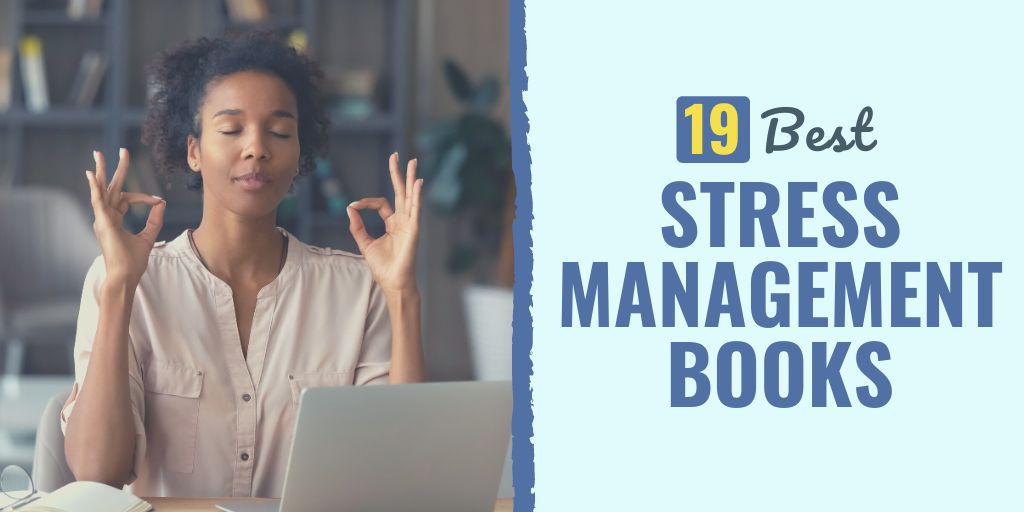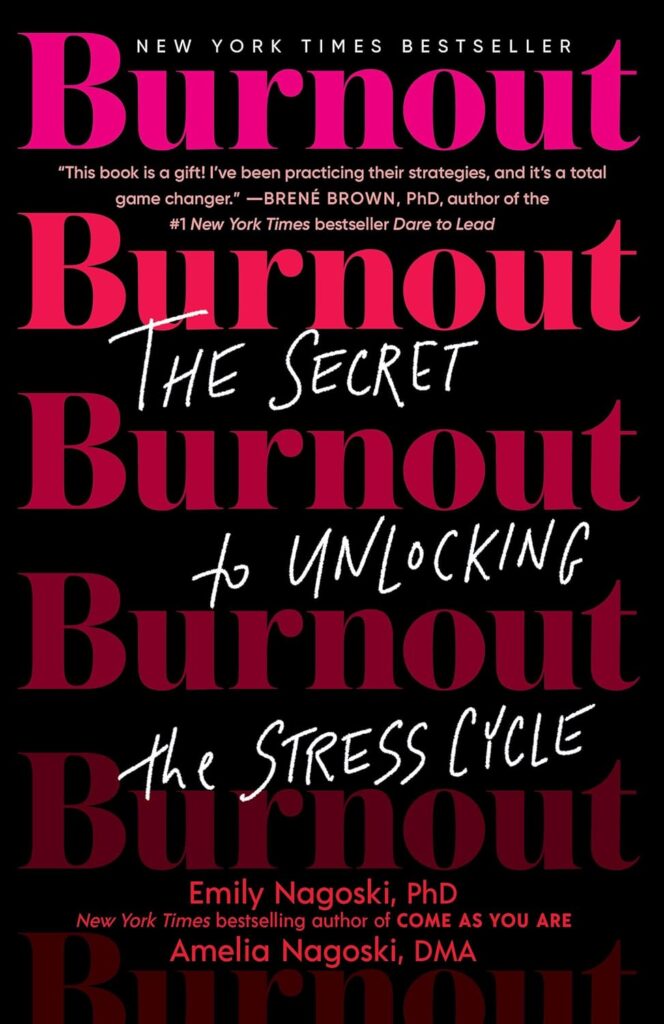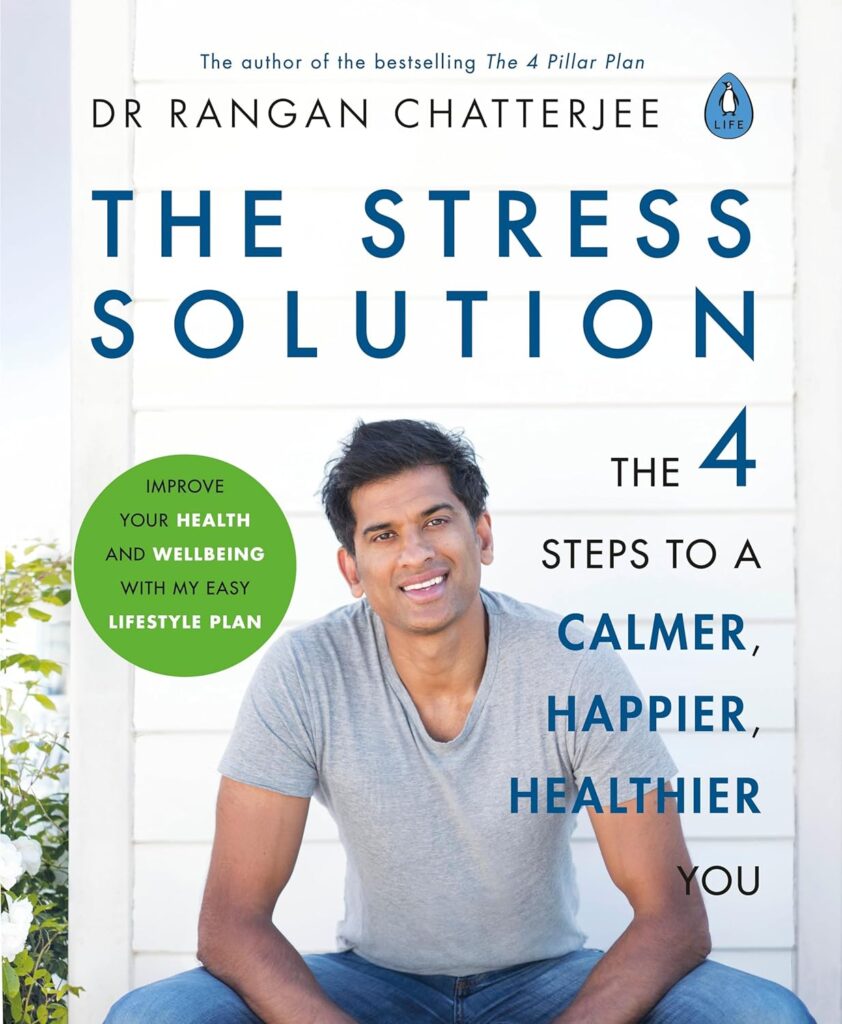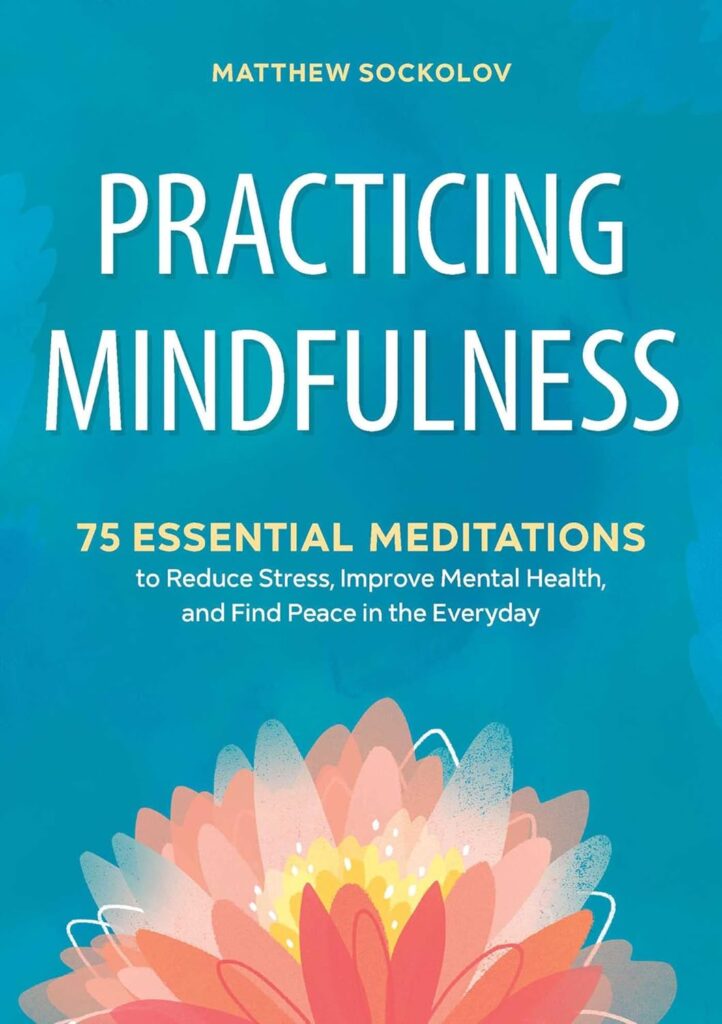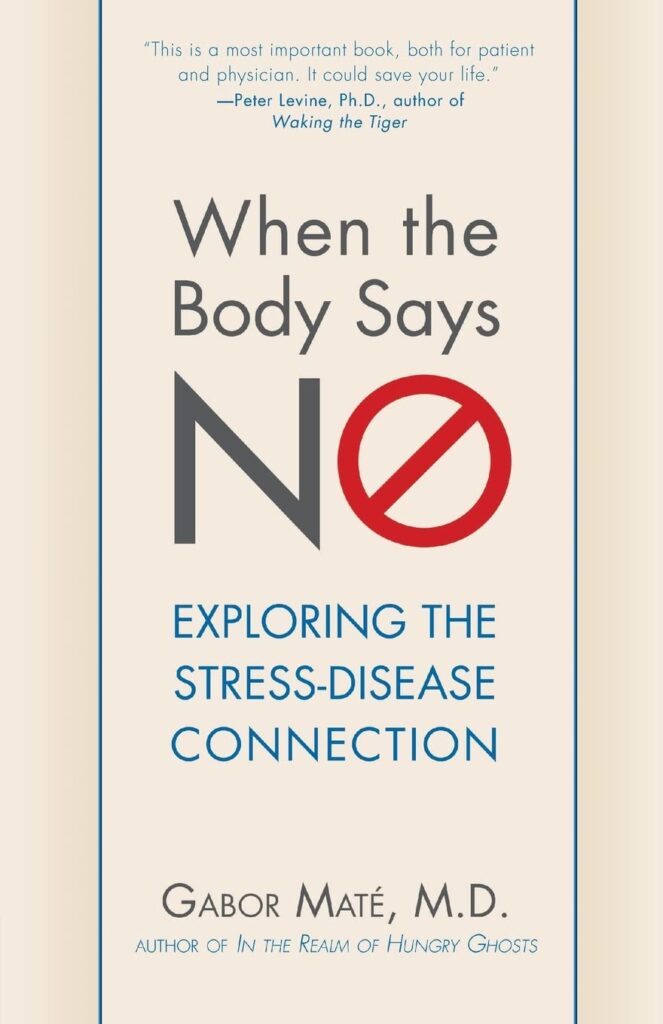What are the best stress books?
What books on stress give the best explanation of exactly what stress is and why we feel it? Where can you find the most effective techniques for managing stress?
Millions of people face the massive amounts of stress daily. In an increasingly connected and hectic world stress is more relevant than ever before. Therefore many people are searching for the best books on stress to help them understand and cope with stress and its many negative physical side effects.
For this list of 19 best stress books, I looked through hundreds of books about stress and anxiety to find the most relevant books on the subject. This list has some books with amazingly well detailed explanations of how stress effects both our bodies and our minds.
There are books about using mindfulness to mitigate and even avoid the effects of stress, There are books that describe using neuroscience and nueroplasticity to control stress. we have. There are books about better managing your time to reduce stress.
There are books with practical tips to reducing stress. There is even a new book saying that our understanding about stress is completely wrong and stress can be extremely positive if you approach it with the correct attitude.
In other words whatever information you want to learn about stress is on this list.
Enjoy! Relax! Read and reduce your stress!
19 Best Books on Stress Management
1. Why Zebras Don't Get Ulcers by Robert Sapolsky, Ph.D.

Check Price on Amazon | Check Audiobook Price
Takeaways:
- Chronic stress has a significant impact on the body, leading to a range of health issues such as heart disease and depression.
- The body's stress response, designed for short-term threats, can become harmful when activated for prolonged periods.
- The book explores the complex interplay between genetics, environment, and individual behavior in determining an individual's stress response.
- Sapolsky delves into the fascinating ways in which stress affects the brain, immune system, and reproductive system.
- The book offers practical strategies for managing and reducing stress, emphasizing the importance of social support and lifestyle changes.
Robert Sapolsky is a professor of biology and neurology at Stanford University. It may seem odd that a biologist and not a psychologist wrote one of the best books on the causes of stress that have ever been written.
It seems odd until you think about the fact that this biologist also studies the brain and nervous system with his studies in neurology. In fact his twin disciples made him the perfect person to write this ground-breaking stress book.
One of Sapolsky’s major point is that stress is a holdover from our hunter-gatherer days. Back in those days you needed the fight or flight response that stress brings about to survive any encounters with predators or to help you escape dire situations.
In those days stress happened quickly and went away quickly, and stress could save your life. Now stress can be constant and is a big problem.
Being a biologist, Sapolsky goes into all the causes of stress as well as all the bad implcations on what it can do to our bodies.
One of the things that make this book great, however, is the writing. Sapolsky is a world-class scientist, but he shares his ideas in easy going personal manner.
He uses cool examples and a bit of humor and good examples drive home his points. He is never cold and clinical and overly scientific with his approach. He writes with great compassion and a sense of humor.
There is only one negative. Why Zebras Don't Get Ulcers: The Acclaimed Guide to Stress, Stress-Related Diseases, and Coping is perfect for describing everything you might want to know about stress.
But the section on what to do about it leaves something to be desired. If you worry about stress, get this book for the explanation on stress and one of the another book on this list to help you cope with stress.
2. From Stress to Stillness by Gina Lake

Check Price on Amazon | Check Audiobook Price
Takeaways:
- The book emphasizes the importance of mindfulness and present moment awareness as a means to alleviate stress and find inner peace.
- It offers practical techniques and exercises to help readers cultivate a sense of calm and clarity in their daily lives.
- The author delves into the nature of the mind and provides insights on how to detach from negative thought patterns and emotions.
- From Stress to Stillness encourages readers to embrace self-compassion and self-love as essential components of a balanced and harmonious life.
- The book explores the concept of surrender and acceptance as powerful tools for transcending stress and finding inner stillness.
The previous book was superb at explaining stress, but is week on practical tips for handling stress. From Stress to Stillness: Tools for Inner Peace on stress is the opposite.
I found that Gina’s opening sections on the causes of stress in the body were her weakest, while later sections are excellent and full of practical advice on dealing with the stress monster.
Her book cover a lot of aspects of stress, but is strongest when she discusses the methods of shutting down our negative inner critic’s and using mediation to decrease stress.
Meditation is not the only method of handling stress, of course, many other books on this list go into other methods, But Gina’s book is surely the very best at describing how to use mindfulness to quiet the stress and get to “stillness”.
This stress book covers:
3. A Mindfulness-Based Stress Reduction Workbook by Bob Stahl Ph.D
Takeaways:
- The book introduces the concept of mindfulness-based stress reduction (MBSR) as a practical approach to managing stress and promoting overall well-being.
- It offers a comprehensive guide to various mindfulness practices, including meditation, yoga, and body scan exercises, to help individuals develop greater self-awareness and resilience.
- The author emphasizes the importance of cultivating a non-judgmental and compassionate attitude towards oneself and others as a means to reduce stress and enhance mental clarity.
- A Mindfulness-Based Stress Reduction Workbook provides practical tools and techniques for integrating mindfulness into everyday life, including stress-reducing strategies for work and relationships.
- The book highlights the potential of mindfulness to foster a deep sense of inner peace and connection, ultimately empowering individuals to navigate life's challenges with greater ease and equanimity.
Mindfulness Based Stress Reduction (MBSR) is a very popular method of handling stress. It has been clinically tested and is taught by clinics and in classes around the world.
The idea behind MBSR is simple at its core. Stress makes people angry, tense, overwhelmed, irritable and tired. It can burn you out, leave you feeling pain and even open your body up to sickness. MSBR has you respond to stress factors in a mindful and non-judgmental
Manner. This calmness and equanimity is able to short circuit stress before it can get a hold of your body and mind.
MBSR is effective in alleviating stress, anxiety, panic, depression, chronic pain, and a wide range of medical conditions. Taught in classes and clinics worldwide, this powerful approach shows you how to focus on the present moment in order to permanently change the way you handle stress.
A Mindfulness-Based Stress Reduction Workbook (A New Harbinger Self-Help Workbook) is very practical and action oriented training and is based on the teachings of the 1991 book Full Catastrophe Living, and many subsequent experiments and books used to refine the techniques of MBSR.
What I enjoyed most about this book is that it is very practical. It is chock full of exercises and training to help you fully understand the concept of mindfulness and practice lessons to help you put it into effect.
Highly recommended if you want to use a mindfulness approach to dealing with stress.
4. Full Catastrophe Living by Jon Kabat-Zinn

Check Price on Amazon | Check Audiobook Price
Takeaways:
- The book advocates for the practice of mindfulness as a means to embrace life's challenges and joys fully, rather than resisting or avoiding them.
- It introduces the concept of “full catastrophe living,” encouraging readers to approach both the pleasant and unpleasant aspects of life with mindfulness and equanimity.
- Full Catastrophe Living provides practical guidance on integrating mindfulness into various aspects of daily life, including stress management, pain relief, and enhancing overall well-being.
- The author emphasizes the transformative potential of mindfulness in cultivating a deep sense of self-awareness, compassion, and resilience in the face of life's inevitable difficulties.
- The book underscores the importance of living in the present moment and developing a non-reactive, accepting attitude towards one's experiences, ultimately leading to a fuller and more meaningful life.
The book that started it all! First written in 1991, Full Catastrophe Living: Using the Wisdom of Your Body and Mind to Face Stress, Pain, and Illness was the book that invented the technique of mindfulness and applied it mainly as a method for relieving stress and even for dealing with pain and illness.
In 1979 Dr. Zinn founded the Stress Reduction Clinic at the University of Massachusetts Medical School.
Zinn originally adapted many concepts of Buddhist teachings on mindfulness. Which makes great sense, because I cannot think of a stressed out Buddhist without laughing. It seems like an oxymoron. (Though the Buddist religious overtones were quickly completely eliminated from his training.)
This book is great at explaining the concept of Mindfulness. The training has proved to be very effect and has had quite a few clinical trials.
If you read self-help books, mindfulness is likely not a new topic to you. The copies of all the different mindfulness books, stacked end-on-end is probably higher than the Empire State Building.
The things that really makes this one stand out is that it was the first. All other books are just copies of Zinn’s original ideas.
This is still a great book and definitely worth reading, although the Mindfulness Stress Workbook listed above is a more practical guide.
5. Don't Sweat the Small Stuff and It's All Small Stuff by Richard Carlson Ph.D

Check Price on Amazon | Check Audiobook Price
Takeaways:
- The book offers practical wisdom and strategies for minimizing stress by adopting a more relaxed and compassionate outlook on life's challenges.
- It emphasizes the importance of perspective and encourages readers to let go of the small, insignificant worries that often consume our thoughts.
- Don't Sweat the Small Stuff highlights the power of gratitude and mindfulness in fostering a more peaceful and contented way of living.
- The author provides actionable advice on how to prioritize what truly matters and let go of the need for perfection, ultimately leading to a more fulfilling and balanced life.
- The book underscores the value of kindness, patience, and understanding in relationships, promoting a more harmonious and joyful existence.
Chances are you have heard of (or at least seen) the super-popular “Don't Sweat the Small Stuff and It's All Small Stuff: Simple Ways To Keep The Little Things From Taking Over Your Life” series of books. But you may not know what this book is really about.
Rather than having page after page detailed methods to reduce stress Carlson simply fills his books with simple advice. This advice is designed to help put your life into perspective and understand that excessive worry and stress does not help you actually accomplish your desires.
The “Don’t Sweat” advice is filled with page after page of small daily changes that anyone can make. Every positive change makes your life a little calmer, less stressful and more settled.
The format is simple. Carlson gives a single pithy line of advice. Then he spends 3-4 paragraphs explaining why this advice is important, then quickly moves into the next piece of advice.
This book includes advice like:
The thing that makes these books so powerful is that all the advice truly is wonderful advice. Even if it were to not be effective on your reducing stress following most of this advice will help to make you a better person.
Carlson wrote more books following this basic format for many of the stress trouble spots in our lives. Work, family and love. These all follow the same pattern and contain similar on spot advice that will help anyone to improve their lives in respect to the area the book focuses on.
Below are the list of other, “Don’t Sweat” books.
Don’t Sweat Small Stuff series of books:
6. The Mayo Clinic Guide to Stress-Free Living by Amit Sood MD and Mayo Clinic

Check Price on Amazon | Check Audiobook Price
Takeaways:
- The book offers a comprehensive approach to stress management, combining medical expertise with mindfulness-based practices to promote overall well-being.
- It emphasizes the role of resilience in navigating life's challenges and provides practical tools for building emotional and mental strength.
- The Mayo Clinic Guide to Stress-Free Living delves into the science of stress and offers evidence-based strategies for reducing its impact on health and happiness.
- The authors highlight the importance of fostering positive emotions, such as gratitude and compassion, as a means to counteract the effects of stress and enhance overall quality of life.
- The book provides actionable steps for integrating mindfulness, relaxation techniques, and healthy lifestyle habits into daily routines, empowering readers to cultivate a more balanced and stress-free lifestyle.
The Mayo Clinic is arguably the best hospital in the world. So when they come out with any guide to a specific malady you can assume that it gives a great overview of top notch thinking on the subject.
However, you might expect The Mayo Clinic Guide to Stress-Free Living to be more of a clinical review of the causes of stress and scientific methods of alleviating stress. But that really is not what this book is about.
What this book actually is a book form of a course that the Mayo clinic has been offering for years for decreasing stress. This course (and the book) is a culmination of 20 years of experience in dealing with stress.
Similar to the “don’t sweat” books, this book deals with a wide variety of topics that cause stress and helps you look at these ideas in a different light.
“Stress Free Living” discusses topics like:
7. Manage Your Time to Reduce Your Stress by Rita Emmett

Check Price on Amazon | Check Audiobook Price
Takeaways:
- The book emphasizes the direct link between effective time management and reduced stress levels, offering practical strategies for improving productivity and well-being.
- It provides actionable tips for prioritizing tasks, setting boundaries, and avoiding procrastination to create a more balanced and stress-free lifestyle.
- Manage Your Time to Reduce Your Stress highlights the importance of decluttering and organizing one's environment as a means to alleviate stress and enhance focus.
- The author offers insights into the psychological aspects of time management, addressing perfectionism, fear of failure, and other emotional barriers that contribute to stress.
- The book underscores the value of self-care and leisure time, encouraging readers to strike a healthy balance between work and relaxation to minimize stress and maximize fulfillment.
Manage Your Time to Reduce Your Stress: A Handbook for the Overworked, Overscheduled, and Overwhelmed is only “sort of” a book on dealing with stress. It could just as easily be considered to be a time management book or a productivity book.
This book mixes positive psychology with time management techniques. In neither of these aspects is the author specifically groundbreaking, but the combination is a good one because she shows how a lot of stress may not be due to the workload, but due to inefficiencies in dealing with the workload.
Though the material is not groundbreaking, what makes this book good enough to be on the best stress books list is the authors writing style. She writes in a simple style that makes you feel like she is talking right to you. She also has some great anecdotes to illustrate the major points of her book.
If you have read lots of books on time management and dealing with stress, you may want to pass on this book since most of the material will at best be just a refresher.
But if you are new to both topics it does give a nice overview on the importance of managing your life and workload properly to decrease the stress it can cause.
8. Undoing Perpetual Stress by Richard O’Connor, Ph.D.

Takeaways:
- The book explores the impact of chronic stress on mental and physical health, offering insights into the underlying mechanisms and long-term consequences.
- It provides practical strategies for breaking free from the cycle of perpetual stress, including mindfulness practices, cognitive reframing, and lifestyle adjustments.
- Undoing Perpetual Stress delves into the psychological and emotional roots of stress, addressing issues such as self-criticism, rumination, and the pressure to constantly achieve.
- The author emphasizes the importance of self-compassion and self-care as essential components of overcoming perpetual stress and restoring balance.
- The book offers a holistic approach to stress management, integrating psychological, behavioral, and lifestyle changes to promote lasting well-being and resilience.
Using common and down-to-earth language Psychologist Richard O’Conner shows us why our modern world is producing more stress than ever before in history, and what we can do about it.
The main point of the Undoing Perpetual Stress: The Missing Connection between Depression, Anxiety and 21st Century Illness is that we are not “made” for all the modern stressors.
All these things combine to make us more susceptible to stress than any other time in history. We have more stressful inputs than ever but our reactions to stress have not evolved in the past 160,000 years since we were simple hunter/gatherers.
In those days stress was only, “fight or flight” and needed to survive. But we now live in a “Perpetual State of Stress” where our stressors affect us from the time we wake up until AFTER we go to sleep.
What O’Conner advocates is basically a mindfulness approach to life.
He argues that this stress often puts us in a mindless state where we are…
“reacting without thought; always in a rush; always in a state of tension that action can't alleviate, irritable, preoccupied, anxious, depressed. Not being fully aware of the present, always preoccupied by the next thing on our list…Mindlessness is a vicious circle, because acting mindlessly never can resolve the distress that fuels it.”
Far better, according to Carlson is to be mindful.
“Becoming more alert, thoughtful, deliberate; not reacting automatically to emotions; more curious, more ready to look beneath the surface, more ready to withhold judgment; kinder, more patient, more tolerant. These are difficult qualities to achieve when we're always running around putting out fires; but if we can't achieve them that is our destiny, one fire after another.”
9. The 10 Best-Ever Anxiety Management Techniques by Margaret Wehrenberg, Ph.D.

Takeaways:
- The book offers practical and evidence-based anxiety management techniques, providing readers with actionable strategies for reducing anxiety symptoms.
- It emphasizes the role of cognitive-behavioral techniques, relaxation exercises, and mindfulness practices in effectively managing anxiety.
- The 10 Best-Ever Anxiety Management Techniques delves into the physiological aspects of anxiety, offering insights into the brain-body connection and its relevance to anxiety management.
- The author highlights the importance of lifestyle adjustments, such as sleep hygiene and exercise, in alleviating anxiety and promoting overall well-being.
- The book provides a comprehensive toolkit for individuals to proactively address and cope with anxiety, empowering them to regain a sense of control and calm.
Wherenberg’s book, The 10 Best-Ever Anxiety Management Techniques, on managing stress and anxiety is based on a simple concept. If you want to fix a problem in your brain, you need to understand your brain.
She gives good scientific explanations of the causes of anxiety and then 10 brain science techniques that actually work, without needing to resort to medication.
The chapters that deal with the specific physical and cognitive and behavioral tools for handling anxiety are excellent. They get right to the point and can have a big impact, specifically for those who do not currently see a psychologist (who may recommend similar techniques).
Full of practical tips that you can immediately put to use in combating anxiety, this workbook can be very helpful to those dealing with generalized anxiety, social anxiety or even panic.
The 10 chapters of this book are easy to read and full of simple and practical advice for dealing with stress and anxiety. Sections include things like cognitive control, breathing techniques, and using positive self-talk.
10. Stress Management for Dummies by Alan Elkin Ph.D

Check Price on Amazon | Check Audiobook Price
Takeaways:
- The book offers a comprehensive guide to understanding the sources of stress and practical techniques for managing it effectively.
- It provides actionable strategies for building resilience, enhancing coping skills, and developing a more balanced approach to life's challenges.
- Stress Management for Dummies emphasizes the importance of self-care, relaxation, and time management in reducing stress and promoting well-being.
- The author addresses the psychological and emotional aspects of stress, offering insights into cognitive restructuring and reframing negative thought patterns.
- The book provides a user-friendly and accessible resource for individuals seeking to proactively address and alleviate the impact of stress in their lives.
Who doesn’t like the “Dummy Books” and have a few around the house. They are never groundbreaking. They are not going to discuss cutting edge techniques. That is not what we buy them for.
Dummy books are always laid out in an easy style to help you learn the basics quickly and easily. They are always written by subject matter experts and then reformatted for their unique style. SO you know the material presented in them will be the stuff you need to know have a comprehensive understanding of the subject.
This is as true in Stress Management for Dummies book as it is in all other stress books.
This book contains:
As with most Dummies books, if you know little or nothing about dealing with stress this should be the first book you read and should be kept as a reference for many aspects of related to managing your stress.
11. Is Stress Your Silent Killer? by Janet Matthews

Check Price on Amazon | Check Audiobook Price
Takeaways:
- Chronic stress can have a detrimental impact on both physical and mental health, leading to conditions such as heart disease and anxiety disorders.
- Recognizing and managing stress triggers is crucial for maintaining overall well-being and preventing long-term health issues.
- The book emphasizes the importance of self-care practices, such as mindfulness, exercise, and healthy eating, in combating the effects of stress.
- Understanding the mind-body connection is essential for addressing stress, as psychological well-being directly influences physical health.
- Practical strategies for stress management, such as time management techniques and relaxation exercises, are provided to help individuals cope with daily pressures.
You have probably heard that stress is the silent killer. This is true. Many Americans die from the side effects of stress over time. Heart attacks. Brain embolisms. The negative effects of stress on many other conditions. [source] This quick and short book gets right to the point on how to deal with stress.
To be honest Is Stress Your Silent Killer?: How to deal with stress and achieve permanent stress relief is more of a pamphlet than a real book. This is both its strength and weakness.
It is more of a “cliff notes” version of dealing with stress. It gets right to the point and wastes no time. If you are stressed about having too many books about stress, that can be a godsend.
However if you DO read a lot of other stress books, the material will be short and repetitive. So this book really only works if as your first introduction of the concept of dealing with stress, or as a overview of basic techniques.
12. The Upside of Stress by Kelly McGonigal

Check Price on Amazon | Check Audiobook Price
Takeaways:
- The book challenges the conventional view of stress as purely negative, presenting evidence that stress can be harnessed for personal growth and resilience.
- Embracing stress as a natural part of life can lead to improved performance, motivation, and a greater sense of purpose.
- The author emphasizes the importance of shifting one's mindset about stress, viewing it as a signal to engage and adapt rather than a purely harmful force.
- Practical strategies are offered for transforming stress into a positive force, including reframing stressful situations and leveraging social connections for support.
- The book advocates for a holistic approach to stress management, incorporating physical, mental, and emotional well-being to build resilience and thrive in the face of challenges.
If you are reading this list of books on stress, there is a good chance you want to get rid of your stress. You are probably looking for methods to reduce stress, or gain a mindset that avoids stress completely. However according to a new book by famed Stanford Psychologist this might be a really bad idea.
McGonigal is the author of one of my favorite books. The Willpower Instinct. A book that discusses how self control can be harnessed to improve productivity, health and happiness is likely one of the best book ever on willpower. (Along with Baumister’s classic Willpower)
In the The Upside of Stress: Why Stress Is Good for You, and How to Get Good at It, McGonigal turns the common perceptions of stress on its head. The key message of this book is that stress can be good for you.
It is not stress itself that is bad, but people’s reaction to stress that is bad. Those that approach stress positively can use it as a tool for growth and those that constantly worry about stress make themselves worse because of this worry, not from stress itself.
The important takeaways from the Upside of Stress are:
If you are looking for stress relief, this book may run counter to what you want to read. McGonigal, however, lays out a very compelling argument.
You would be doing yourself a disservice if you did not take her points into consideration when thinking about how to handle your stress. It might not be the problem you think it is.
So rather than letting stress eat you alive, why not try using it to achieve greater success. It all comes down to your reaction to stress. Why not see the upside of stress?
13. The Power of No by James and Claudia Altucher
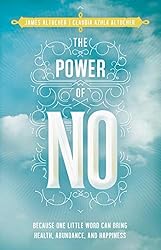
Check Price on Amazon | Check Audiobook Price
Takeaways:
- The book emphasizes the importance of setting boundaries and learning to say “no” in order to prioritize personal well-being and goals.
- Understanding the value of saying “no” can lead to increased productivity, reduced stress, and improved overall satisfaction with life.
- The authors provide insights into the psychological and societal factors that make saying “no” challenging, and offer practical strategies for overcoming these obstacles.
- Learning to say “no” effectively can lead to more meaningful and fulfilling relationships, as well as a greater sense of control over one's time and energy.
- The book encourages readers to reevaluate their priorities and commitments, empowering them to make choices that align with their values and lead to a more fulfilling life.
One common theme of many people who are stressed and overwhelmed is that they are people pleasers who do not want to disappoint. They will take on more and more tasks until they break under the strain of stress overload.
James and Claudia show us how to connect with our true selves by saying NO to the things that may cause harm.
This another case where this book, The Power of No: Because One Little Word Can Bring Health, Abundance, and Happiness, is only “sort of” a book on dealing with stress.
It gives us a view of how to live our life’s in a more wholesome way and not let the opinions of others force us into bad decisions. It is about more than saying, “no” it is about the taking the power back in our lives and taking full control of our lives.
When you have this type of control of your mind and your life there is little room left to be stressed.
14. Change Your Brain, Change Your Life by Dr. Daniel G. Amen

Check Price on Amazon | Check Audiobook Price
Takeaways:
- The book explores the powerful connection between brain health and overall well-being, highlighting how specific lifestyle changes can positively impact brain function.
- Dr. Amen provides insights into various brain-imaging studies and their implications for understanding and improving mental health and cognitive function.
- Practical strategies for optimizing brain health, such as nutrition, exercise, and stress management, are presented to empower readers to make positive changes in their lives.
- The book emphasizes the concept of neuroplasticity, illustrating how the brain can adapt and change throughout one's lifetime, offering hope for personal growth and transformation.
- Dr. Amen advocates for a holistic approach to mental health, addressing not only biological factors but also the influence of social, psychological, and spiritual dimensions on brain function and overall well-being.
Change Your Brain, Change Your Life : The Breakthrough Program for Conquering Anxiety, Depression, Obsessiveness, Lack of Focus, Anger, and Memory Problems is “just” a book about stress.
It deals with many forms of emotional problems: anger, lack of focus, anxiety, memory issues, obsession and even depression. This book take an academic slant. Yet it still remains quite practical.
Change your Brain, Change your Life delves into the relationship between our brain patterns and the problem behavior. Understanding this relationship can help us find cures for a lot of mental problems.
One of the major differences between this book and others is the stance on using prescription drugs.
Many books take a stance against these drugs or at least offer alternatives without drugs, while this book lays out many strong arguments for drugs in some situations and lets the readers know when they should be used and when avoided.
I am strongly casual use of over the counter medication. Too many people are too ready to quickly turn to drugs as a solution to all their mental problems.
However, there are many times when using some medicine may be the right thing to do I appreciate the fact that this book does not sugar coat that and flat out says when medication may be the best answer. I appreciate this balanced approach to the subject of mental issues and medication.
The material in this book was originally written over 25 years ago and with a few minor rewrites stays as true (and powerful) today as it was over 25 years ago.
This book focuses on an energizing approach to stress that was developed by Dr. Bensen and his colleagues at Harvard Medical School. The called the therapeutic technique the “Relaxation Response” and administered it in the laboratories and teaching hospitals of Harvard for many years.
The massive success of the program at Harvard led Bensen to write the book detailing the program to the public. It has since helped millions of people to deal with their stress effectively.
Without needing to visit a guru or take over-the-counter or prescription drugs patients can decrease their levels of stress.
The basic procedure is easy to learn. By skim reading you could probably get the “gist” in as little as 10 minutes. After that it simply takes dedicating 10-20 minutes every day to put it into effect.
The primary point of this book was to show the mind-body connection and how stress could exacerbate or even cause body issues like hypertension. Nowadays this mind-body connection is pretty much taken for granted by most people. But it was groundbreaking news when it was released.
Furthermore Bensen advocates regular use of relaxation techniques. Using these techniques can reduce symptoms of cardiovascular disease(specifically hypertension) and help the body heal itself.
15. End of Stress by Dr. Don Joseph Goewey

Takeaways:
- The book presents a comprehensive understanding of the nature of stress and its impact on health, relationships, and overall quality of life.
- Dr. Goewey offers practical, evidence-based techniques for managing and reducing stress, enabling readers to cultivate resilience and well-being.
- The author emphasizes the importance of mindfulness and self-awareness in overcoming stress, providing actionable steps for integrating these practices into daily life.
- The book delves into the science of stress and its effects on the brain and body, empowering readers with knowledge to make informed choices for stress reduction.
- Dr. Goewey provides a roadmap for transforming the way individuals respond to stress, offering a path to greater peace, productivity, and fulfillment.
End of Stress: Four Steps to Rewire Your Brain starts with a detailed description of the physical effects of stress on the body.
He also mapped and outlined what the brain is doing while this stress is going on. In fact, I think it was a bit detailed. I did not need him to go into all the detail, but it was certainly interesting.
One of the major tenets of this book is about living in the moment when dealing with stress and its effect. Too much worry about stress will only cause more stress after all.
This book has a simple four-step strategy that will decrease stress, eliminate anxiety and may even increase your brainpower. Goewey’s created the theories in this book from extensive study and practice of the latest and greatest techniques of neuroscience and neuroplasticity being implemented to combat stress.
But these theories are not all theory without application too! There was extensive testing done in high stress environments and has proven effective for engineers, managers, blue-collar workers and even high powered CEOs.
16. Burnout by Emily Nagoski Ph.D. and Amelia Nagoski DMA
Check Price on Amazon | Check Audiobook Price
Takeaways:
- Burnout: The Secret to Unlocking the Stress Cycle offers a deep dive into the science of stress and burnout, providing valuable insights into the physiological and psychological mechanisms at play.
- Practical strategies for combating burnout are provided, emphasizing the importance of self-compassion, setting boundaries, and engaging in activities that promote well-being.
- The authors highlight the gender-specific aspects of burnout, addressing how societal expectations and cultural norms can contribute to burnout experiences for women.
- The book emphasizes the significance of completing the stress cycle and offers actionable techniques for effectively processing and releasing accumulated stress.
- Through personal anecdotes and research-based evidence, the authors provide a holistic understanding of burnout and empower readers to take proactive steps toward recovery and resilience.
17. The Stress Solution by Dr. Rangan Chatterjee
Check Price on Amazon | Check Audiobook Price
Takeaways:
- The Stress Solution: The 4 Steps to Reset Your Body, Mind, Relationships and Purpose emphasizes the impact of lifestyle factors, including diet, exercise, and sleep, on stress levels and overall well-being, offering practical strategies for optimizing these areas.
- Dr. Chatterjee advocates for a holistic approach to stress management, incorporating elements of mind-body connection, social connections, and purposeful living.
- The author provides actionable steps for building resilience and reducing stress, drawing from his medical expertise and personal experiences to offer evidence-based advice.
- The book explores the concept of “micro-stress doses” and their cumulative impact on health, encouraging readers to make small, positive changes to counteract this effect.
- Dr. Chatterjee offers a personalized approach to stress management, recognizing that individual needs and circumstances vary, and provides a toolkit for readers to tailor their stress-reduction strategies to their own lives.
18. Practicing Mindfulness by Matthew Sockolov
Check Price on Amazon | Check Audiobook Price
Takeaways:
- Practicing Mindfulness: 75 Essential Meditations to Reduce Stress, Improve Mental Health, and Find Peace in the Everyday introduces mindfulness as a powerful tool for managing stress, improving focus, and cultivating overall well-being, offering practical techniques for integrating mindfulness into daily life.
- Sockolov emphasizes the importance of present-moment awareness and non-judgmental acceptance, guiding readers through exercises to develop these skills.
- The author explores the scientific evidence supporting the benefits of mindfulness, providing a comprehensive understanding of its impact on mental and physical health.
- The book offers guidance on using mindfulness to navigate challenging emotions and thoughts, providing readers with tools to develop resilience and emotional regulation.
- Sockolov encourages readers to approach mindfulness as a skill that can be cultivated over time, offering a roadmap for integrating mindfulness into various aspects of life for lasting benefits.
19. When the Body Says No by Gabor Maté M.D.
Takeaways:
- When the Body Says No: Exploring the Stress-Disease Connection explores the intricate connection between emotional stress and physical health, shedding light on the impact of repressed emotions on the body's susceptibility to illness.
- Dr. Maté delves into the role of early life experiences and trauma in shaping an individual's stress response and vulnerability to disease, offering insights into the mind-body connection.
- The author emphasizes the importance of setting boundaries, expressing emotions, and cultivating self-awareness to prevent the negative health effects of chronic stress.
- Through case studies and research, the book highlights the link between certain personality traits and the manifestation of stress-related illnesses, providing a nuanced understanding of individual health outcomes.
- Dr. Maté advocates for a holistic approach to healing, addressing not only physical symptoms but also the emotional and psychological factors that contribute to stress-related conditions.
Final Thoughts on Stress Management Books
Hopefully, this list of books helped you discover a wealth of wisdom to help you navigate life's inevitable ups and downs.
Remember, stress is a universal experience, and how we handle it can truly shape our lives. These books offer a roadmap to find calm amid the chaos, to regain control when life feels overwhelming, and to flourish in the face of adversity.
Choose one book that resonates with you, absorb its insights, and start implementing the strategies within. Over time, you'll find that stress becomes a manageable force, and you, its master.
And if you're looking for more resources on stress management, be sure to check out these blog posts:
- 7 Best TED Talks on Stress Management
- 17 Printable Stress Management Worksheets & Templates
- 23 Healthy Ways to Deal with Stress


